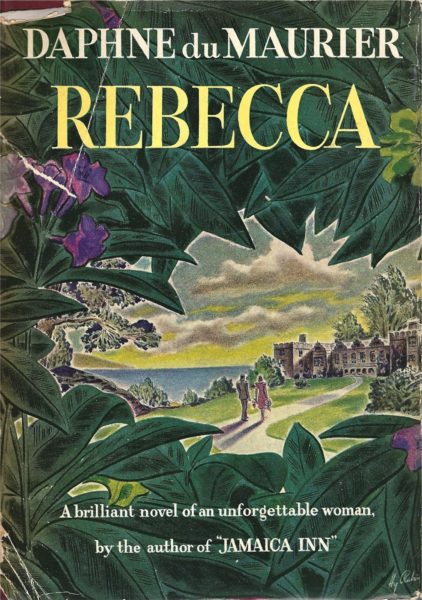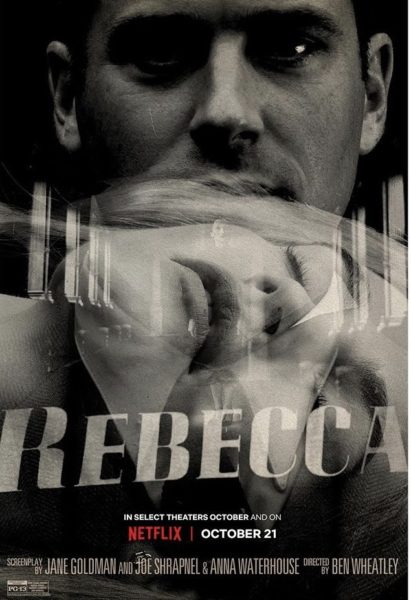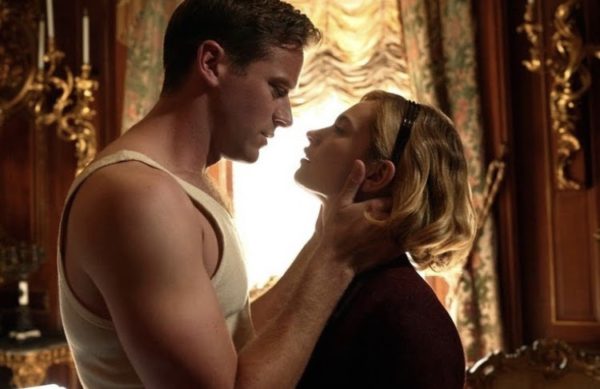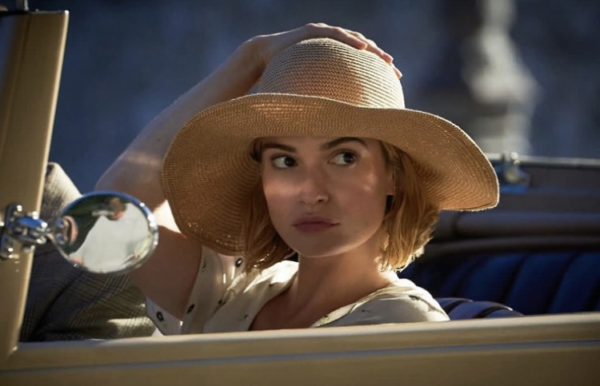‘Rebecca’: a haunting tale across many mediums
“Rebecca, always Rebecca. Wherever I walked in Manderley, wherever I sat, even in my thoughts and in my dreams, I met Rebecca.”
For 82 years, “Rebecca” has stood out in the gothic genre. The 1938 novel by Daphne du Maurier continues to capture audiences with its lavish descriptions, authentic characters and haunting narrative.
“Last night I dreamt I went to Manderly again.”
With one of the most poetically revered opening lines, the novel opens on a nameless protagonist and narrator who is prompted by a dream — the one reference in the first line — to recall the events of several years prior. The events of the novel.
As a young 20-something woman with no fortune or family, she worked as a ladies’ companion for socialite Mrs. Van Hopper. While vacationing in Monte Carlo, they cross paths with Maxim de Winter, the wealthy and recently widowed owner of Manderley, a famed English estate. The two form an unexpected bond over a series of lunches and drives when her mistress falls ill, and he soon asks her to marry him. Quiet and naive, our protagonist, now Mrs. de Winter, comes home to Manderley to find the presence of Maxim’s first wife, Rebecca, still lingers there.
Exploring the dangers of unchecked love, anxiety and imagination, “Rebecca” is a skillfully crafted romance, period drama, psychological thriller and murder mystery all wrapped in one.
The novel received immediate fame following its release and has never gone out of print. It is a gem in the literary world.
Mrs. de Winter is one of the most down-to-earth characters I have had the pleasure of reading. Her insecurities, awkwardness and thought processes are so innately human, they cannot help but be relatable. She frets over whether she is pretty enough and compares herself constantly to others. She thinks everyone is silently judging her. She often gets caught up in imaginary scenarios that sometimes span multiple paragraphs, convincing herself of their reality.
Her triumphs are your triumphs, her fears your fears — just as it should be when reading.
 The characters, however, are only an enhancement of the masterfully crafted thought. Names hold incredible power in language. It is an undeniably unique and powerful writing choice to have a nameless protagonist, meanwhile, the title character is never physically seen — a writing choice only worthy of a skilled writer. Du Maurier is such a writer.
The characters, however, are only an enhancement of the masterfully crafted thought. Names hold incredible power in language. It is an undeniably unique and powerful writing choice to have a nameless protagonist, meanwhile, the title character is never physically seen — a writing choice only worthy of a skilled writer. Du Maurier is such a writer.
The first pages alone overflow with beautifully crafted language that only carries through its remaining, nearly 500 pages.
It is no surprise such a popular book has been adapted to screen so many times.
The first and most famous adaptation was in 1940, directed by the king of suspense himself, Alfred Hitchcock. Acting legend Laurence Olivier led as Maxim de Winter and pre-Oscar-winning Joan Fontaine starred opposite as Mrs. de Winter.
The film was nominated for 11 Oscars and won two including best picture. Needless to say, it has been as revered and as beloved as the novel it’s based on for the past 80 years. But, after all the advancements in film and acting, its reputation does not hold up to modern expectations. The transitions can appear elementary, the pacing off and acting stiff. The film, along with the novel, has elements that have not aged well including a borderline toxic masculine lead and insensitive treatment of a disabled supporting character.
 via IMDB
via IMDB 2020 lead actor Armie Hammer even said in an interview with the Hollywood Reporter, “We have a more discerning, a more conscientious, and — dare I say — a more woke audience. They wouldn’t stand for the 1940s version.”
Enter director Ben Wheatley for a modern adaptation.
On Oct. 21, Netflix debuted a new take on the classic gothic starring Armie Hammer from “Call Me By Your Name” and Lily James from “Cinderella” as the haunted de Winters.
I’ve previously written on what makes a good book to film adaptation. I can honestly say this is the superior adaptation. It pays homage to the original source material as well as previous adaptations while utilizing the best of modern technology and social expectations.
Armie Hammer’s Maxim de Winter still shoulders the English stiffness found in the book while bringing new levels of meaning to it. He presents a far less static interpretation and, in climatic tension, brings needed emotion perhaps deemed unmasculine in previous generations.
 Official Netflix Poster
Official Netflix Poster His yellow suits, brooding tempers and subtle accent will have you forgetting all about Laurence Olivier’s impeccable mustache and falling in love with him right alongside Mrs. de Winter.
Beyond the postmodernism take on its male lead, it portrays a more understanding, less demeaning characterization of a mentally ill supporting character.
The film’s true modern improvements are carried by its female leads.
Lily James leads as Mrs. de Winter. With a spectrum of films under her belt from “War and Peace” to “Baby Driver,” James has already proven her cinematic range yet still manages to exceed audience expectations by reaching new depths of vulnerability. Her awkward charms and skittish manners throughout the film’s first and second acts make it impossible to believe she is the same actress who stormed into a regency ball with blades flashing in the 2016 action-comedy “Pride and Prejudice and Zombies.
 Lily James via Instagram
Lily James via Instagram The film’s third act takes a subtle, modern feminism stance by keeping Mrs. de Winter as the plot’s lead progressor, something the book and Hitchcock film sidelined her on. James rises to the plot and presents a satisfying character arc equal to that of the book.
Opposite James, Kristin Scott Thomas from “Gosford Park” carries an unshakable presence as the antagonistic Mrs. Danvers, the estate’s head housekeeper who is set on keeping Rebecca’s memory alive. She commands each scene while sending shivers down spines and steadily growing suspicion.
 Lily James via Instagram
Lily James via Instagram While not as direct of an adaptation as Hitchcock’s and with an added dash of heightened sexuality common in Hollywood, the film’s new material does not take away from the story. I believe it only enhances du Maurier’s work. Original scenes blend with those from the book and rarely present things out of character.
Shot beautifully with stunning backdrops and artistic shots, there were only a few short sequences that did not seem entirely fitting, but they were few and far between enough not to leave a bad taste.
“She would never haunt me again.”
Unlike our lovable Mrs. de Winter, whether you choose to indulge in the story via the book or through the cinematic lenses of Alfred Hitchcock or Netflix’s new film, Daphne du Marier’s “Rebecca” will linger like a ghost in your mind this Halloween.
 Dara Lusk was born and raised in northern Virginia outside of Washington, DC. She is majoring in English with an emphasis in Technical/Professional Writing and a minor in Anthropology. When not writing she loves reading and annotating classic literature.
Dara Lusk was born and raised in northern Virginia outside of Washington, DC. She is majoring in English with an emphasis in Technical/Professional Writing and a minor in Anthropology. When not writing she loves reading and annotating classic literature.
@dara_marie_

